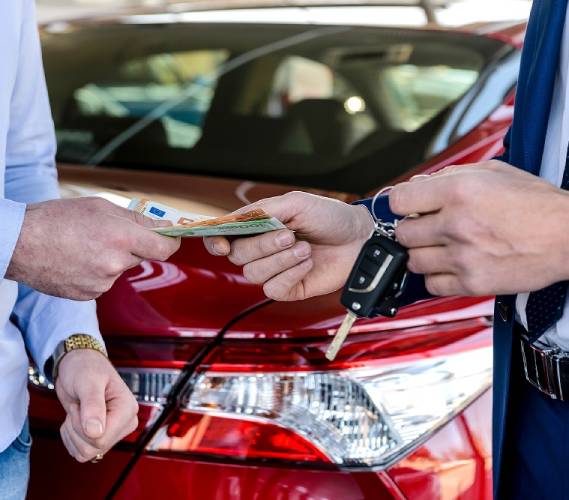Car repossession is the legal process by which a creditor or lender can take back possession of a vehicle from a borrower who has failed to pay for a car loan or lease agreement. Once the vehicle is repossessed, the lender may sell it to recoup their losses.
Losing a car is hard, and getting approved for another auto loan is even tougher. Getting an auto loan in the US is a tedious process that involves providing proof of income and employment, submitting a credit application, and undergoing a credit check.
For those experiencing financial struggles and in danger of car repossession, there are options for financial assistance. Furthermore, nonprofit organizations and government agencies provide support and resources to those facing repossession or struggling to make car payments.
Here's what you need to know about financial assistance for car repossession.
What Happens When You Can't Make Car Payments?

If someone cannot make their car payments, they may face the consequences such as late fees, damage to their credit score, and ultimately, car repossession. Car repossession can impact one's ability to obtain credit in the future, and the borrower may still owe money to the lender if the car is sold for less than the remaining loan balance. In some cases, the borrower may also face legal action from the lender.
The Federal Reserve Board regulates the US economy and oversees the banking system. The Board sets monetary policy, which can impact interest rates and the availability of credit. Lenders may be unable to offer assistance programs or charge higher interest rates for auto loans as a result.
Lenders may offer financial assistance programs for low-income families or individuals facing financial hardship. These programs may include loan modifications, which can adjust the terms of the loan to make payments more affordable, or forbearance, which can temporarily suspend or reduce payments. Lenders may also offer payment plans or hardship programs to help borrowers avoid default and car repossession.
Avoiding Legal Trouble Through Repossession
If you are facing car repossession, it is essential to understand your legal rights and options. Hiring a lawyer who specializes in consumer law or bankruptcy can be beneficial in navigating this process and avoiding legal trouble.
A lawyer can help you understand the repossession process, negotiate with the lender, and determine whether bankruptcy or other legal options may be appropriate. A lawyer can also review your loan agreement and other relevant documents to ensure that your lender is complying with all applicable laws and regulations.
When choosing a lawyer, consider factors such as experience and expertise. Look for a lawyer who offers a free consultation and who is transparent about their fees and billing practices.
How Do You Avoid Car Repossession?
Making regular and timely payments is the most effective way to avoid car possession. If you are struggling to make your car payments, there are several steps you can take to avoid repossession and keep your vehicle:
- Contact your lender to discuss options. Your lender may be willing to work with you to set up a payment plan or modify your loan terms to make your payments more manageable.
- Seek financial assistance for car repossession. Many government and nonprofit organizations offer financial assistance to individuals facing financial hardship. Consider applying for programs in your area and researching local resources.
- Sell the car. If you are unable to make your car payments and do not want to risk repossession, sell the car to pay off the loan.
Frequently Asked Questions
Here are answers to commonly asked questions.
Negotiating with the lender after repossession may be more challenging than negotiating before repossession, but it is still possible. You can "redeem" the car by paying the outstanding loan balance plus any additional fees, or you can negotiate a settlement that includes a reduced amount to satisfy the debt.
The number of months that must pass before a car is repossessed varies depending on the terms of your loan agreement and state laws. Typically, lenders can begin the repossession process after you miss one or two payments, which could be as soon as 30 to 60 days after the missed payment.
"Redeeming" a repossessed vehicle involves paying off its debt. You'd have to pay the outstanding loan balance plus other fees like towing and storage charges. Take note that you'd still suffer from a bad credit score even if you "redeem" the car.
Losing a car to repossession is tough and has dire consequences. Before that happens, you should seek out financial assistance for car repossession so you can take the necessary measures to prevent this from happening.
Want to learn more about the best working cars? Check out our article about the top 5 working cars for working people today.
If you've lost your car to repossession, you can still get a new one. Read our post on Free Cars for Low-Income Folks to learn more.







